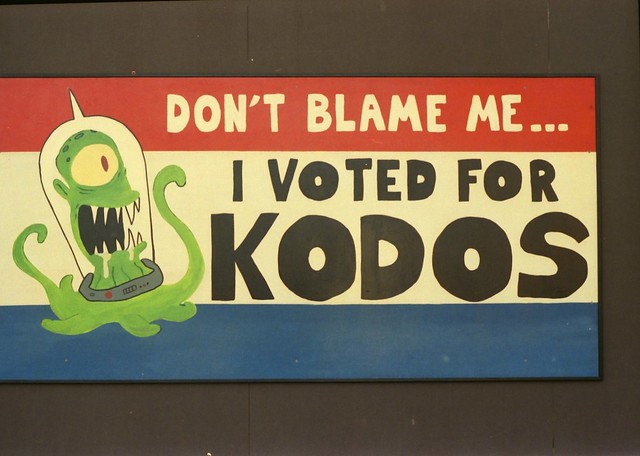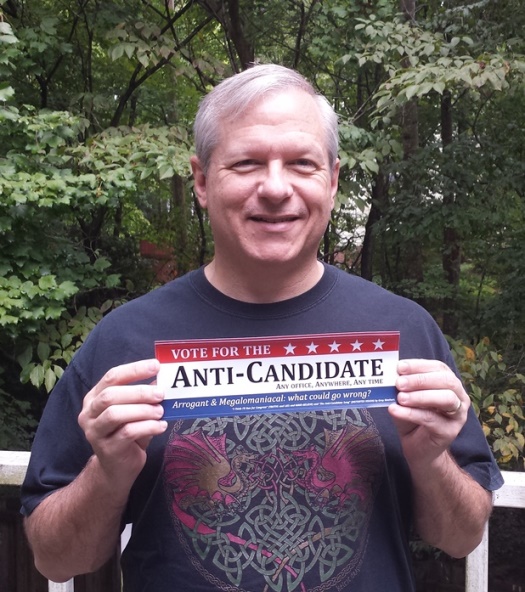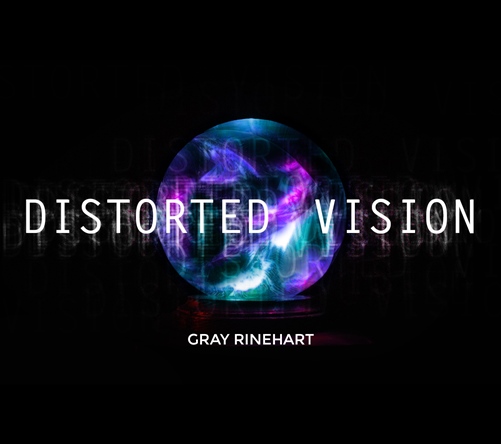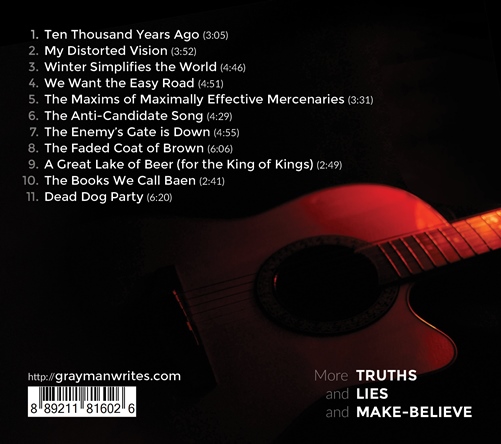Third in a series of blog posts about the songs on my new CD, Distorted Vision.
Some people reading this may be averse to anything that even hints at Christianity, its tenets or its practices. That’s okay. But even people who do not follow Christ can often recognize and sometimes appreciate things he said.
Consider “Turn the other cheek,” for instance. Many people might recognize that sentiment without knowing that Jesus said it, or without knowing how subversive it was at the time.* Like many of the things that Jesus taught, however, it’s easier to say than it is to put into practice. To apply it to a recent situation in science fiction and fantasy fandom, had more people been able to turn the other cheek the great Hugo Award Fracas of 2015 might have resulted in fewer hurt feelings and fewer damaged friendships.
The truth is that Jesus said some things that are difficult to understand and difficult to embody. As a result, the practice of Christianity is sometimes hard to accomplish.
Follow me, and learn to fish for human souls
Follow me, leave your family and your home
Follow me, I don’t bring peace, I bring a sword
Follow me, and let the dead bury their own
Some of those things are hard to figure out, and some are hard to do, on top of the basic problem of dealing with doubt and uncertainty day by day, and of trying to make the most of whatever measure of faith we may have. This song, then, is primarily about dealing with the difficult things that Jesus said, the things he said that fly in the face of the way we think the world works or should work, and above all else the one thing he said that can confound us whether we ignore it or we try to obey it. And that was simply, “Follow me.”
What are we to make of the things he said? At times during the song you get some of my reactions:
- “It sounds so good, you knew it would, all the pleasant things you said”
- “It sounds so odd, these words from God, so we ignore the hard things you said”
- “It sounds absurd, these things we heard — all those crazy things you said”
- “We close our ears, don’t want to hear, are we sure that’s what you said?”
And as the good things he said transition to odd things, to things that sound absurd, and to things that we may not want to hear, I conclude that quite often we want the easy road rather than the straight and narrow, the wine and the bread of communion rather than the sweat and sacrifice of service.

“We want the easy road, the wine, the bread.” (Image: “A loaf of bread…” by James Lee, from Flickr under Creative Commons.)
Whether you are a believer or not, whether you have ever even thought much about who Jesus was or what he did, I hope you can find something to ponder in “We Want the Easy Road”. And if you like it, go ahead and share it with others who might like it, too.
___
*If you want to know more about how turning the other cheek or going the extra mile would have been subversive acts, drop me a line.
















